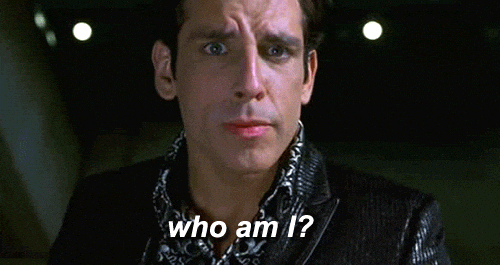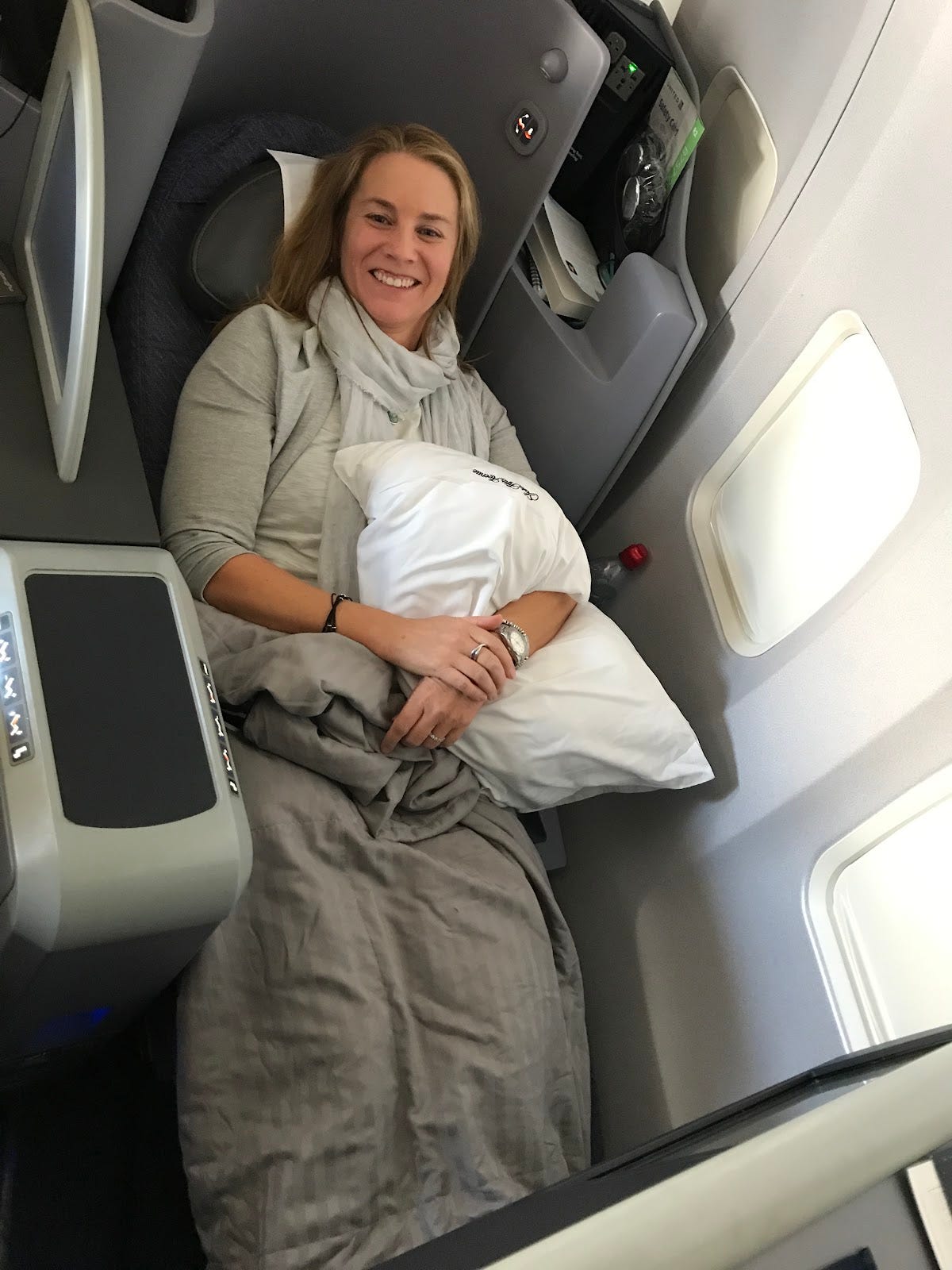#92: Identities that limit and identities that liberate.
The slippery slope of defining ourselves.
The Luminist is a reader-supported publication that illuminates the pain, the pleasure, and the paradox on the path to technicolor living. Subscribe below to receive posts about how loss teaches us to get the most out of life (along with silly gifs) in your inbox every Saturday.
This summer I spent 28 days hoofing it from one twin bed to the next, sleeping in bunk rooms with strangers, and sharing my bathroom, which was also sometimes an outhouse.
There was a part of me — blazer-wearing, global-frequent-flying, c-suite veteran — that was accustomed to the finer ways of travel. Lay-flat, business class beds. Posh hotels. Uber XL. If she had really thought this pilgrimage thing through, peeing in the woods and all, she would have put the kibosh on the entire endeavor with a raised eyebrow and a ‘I could never’.
But she could, and she did.
Just like we cling to safety and certainty in the outer world, we cling to it internally too.
We use our identities as scaffolding — they’re how we describe ourselves, but also how we understand ourselves.
Our identities:
Define our priorities, which is undeniably useful when there is somehow less and less time in the day.
Clarify our values, so we have a template for how to respond to the ever-changing world around us.
Simplify decision-making. What would a compassionate mother, shrewd business woman, outdoorsy pilgrim do?
Give us meaning and purpose, which is better than a cup of coffee in the morning.
When we’re young, we often play with our identities — do I want to be an athlete or band geek or cool kid today? But by midlife, most of us have spent years crafting these internal structures, getting comfy cozy inside them, and relying on them for our sense of safety.
We go from defining our identities to letting them define us.
In a perfect world, that doesn’t sound so bad. We’ve intentionally chosen these identities and now they help us be who we want to be in the world. They act as our north star, providing us clarity in an overwhelming buffet of options, distractions, and advice. For example, I can imagine how owning the identity of ‘athlete’ would help one be consistent in their workouts, nutrition, and general self care.
But this isn’t a perfect world. Sometimes we choose identities for the wrong reasons, and realize later we have to start over. Sometimes even good identities hold us back. And sometimes identities we love get ripped away from us, leaving us disoriented inside and out.
The biggest identity I’ve lost in my life has been that of ‘wife’ — trading down significantly for ‘widow’.
A soap box I pull out a lot here is rewriting the story of loss, which could also be seen as rewriting the identity of ‘widow’. Because when you think of a widow, you likely imagine a sullen-faced woman in all black who lives in a creaky house full of cobwebs. At least I do. And though I am in fact a widow, I have NO interest in letting that identity define me (or at least the cultural understanding of it).
You’d think because I’ve already learned to ignore expectations and blaze my own trail, I would easily spot the pitfalls of identities and smoothly steer around them. Not so much. Most recently I swapped ‘corporate leader' with ‘creative’ and ‘regular business traveler’ with ‘stay-at-home mom’, not to mention ‘bougie business woman’ with ‘intrepid pilgrim’. I feel like I’m wearing clothes that don’t quite fit, and am constantly looking around for some assurance that I’m on the right path.

And I know I’m far from the only one feeling the confusing growing pains of midlife. As kids move out, retirement looms, health declines, desires evolve, and priorities shift, it can be hard to know how to move forward.
I think loss of identity is one of the reasons that transitions, even when positive, feel so scary.
We are giving up part of our structure of self knowing — tearing it down to renovate it. That identity may have felt cramped and out-dated for ages, but it still felt safe.
However, evolution is an inevitable part of the human experience. Sometimes we have a choice, sometimes we don’t. Either way, there has to be a way we can widen our scope of self to make it easier to evolve, rather than harder.
Thank god for podcasts.
“I’ve learned to anchor my identities to why I do the things that I do, rather than what I do,” Dr. Maya Shankar, violinist turned neuroscientist turned podcast host shared on the Huberman Lab.
Ah, yes! For much of my life I’ve gotten lost in ‘the what’, but the point is really always ‘the why’. And ‘the why’ gives us so many more options to show up in the world beyond the one we are living today. When we are focused on ‘the why’, the details of our lives can change, but we don’t get lost.
I don’t need a job leading 10,000 people, a swanky hotel room, or a business class flight to do what’s most important to me: make an impact on other human beings. And I don’t need to be a wife to know that my love is felt, appreciated, and reciprocated. There are endless ways we can show up in the world to achieve our whys, once we let go of the whats.
I want to build a scaffolding that can bend instead of break when my life is inevitably turned upside down again… or when I decide that I’m ready for something different. Because part of the fun of life is exploring the unknown, getting outside my comfort zone, and surprising myself.
Even if it involves peeing in the woods.
To new identities,








The “why” vs the “what” in shaping new identity - what a wonderful re-framing! Thank you